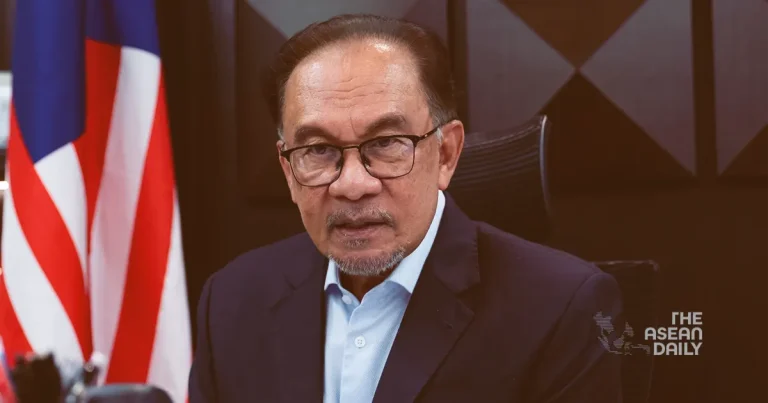17-2-2025 (KUALA LUMPUR) Malaysian Prime Minister Anwar Ibrahim has called for a fundamental shift in ASEAN-China relations, emphasising the need to move beyond conventional trade partnerships towards strategic technological collaboration and sustainable development.
Speaking at the China Conference: Southeast Asia 2025 on Monday, the Prime Minister highlighted the pressing challenges facing the region, including the emergence of artificial intelligence and potential new American trade barriers under a renewed Trump presidency.
“The time for merely reacting to global shifts has passed. ASEAN must take the lead,” Ibrahim declared at the conference, organised by the South China Morning Post. He outlined a vision for the region’s future that emphasises technological integration, economic framework development, and equitable growth.
The Malaysian leader’s remarks come amid growing market uncertainty following Donald Trump’s return to the White House in January. Trump’s pledge to implement widespread tariffs, targeting not only Chinese exports but also nations with substantial US trade deficits, has sent ripples through global markets.
Maintaining Malaysia’s non-aligned stance in the midst of US-China tensions, Ibrahim firmly rejected economic coercion and unilateral actions that could destabilise the region. He advocated for a rules-based multilateral system that ensures fair representation, particularly for developing nations.
To build resilience against external economic pressures, Ibrahim proposed expanding ASEAN’s global partnerships beyond traditional allies to include stronger ties with China, Middle Eastern nations, and emerging economies. He emphasised the importance of establishing an ASEAN energy grid and developing the region’s digital and AI capabilities.
Malaysian Trade Minister Tengku Zafrul Aziz later addressed concerns about potential Trump tariffs, particularly given the increasing presence of Chinese companies in Malaysia and Southeast Asia. “While no tariffs have been imposed on Malaysia yet, we must acknowledge this as a possible eventuality,” Aziz stated during a press briefing.
The conference, last hosted by Malaysia in 2018, serves as a regional platform for the South China Morning Post’s flagship event, bringing together key government officials and business leaders to examine the evolving relationship between China and Southeast Asia.
Ibrahim concluded with a call for decisive action: “This moment demands bold decisions and transformative partnerships. ASEAN’s future prosperity depends on our ability to act with unity and ambition today.”




